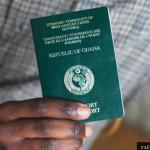The 38th African Union Summit in Addis Ababa (February 15-16, 2025) marked a pivotal shift toward addressing Africa's systemic financial challenges through institutional reforms and collaborative mechanisms. Here's a breakdown of key outcomes:
Addis Ababa, Ethiopia | February 17, 2025
Key Outcomes
African Financing Stability Mechanism (AFSM) Launched
The African Union (AU) unveiled the African Financing Stability Mechanism (AFSM), a landmark initiative designed to address the continent’s annual $10 billion debt refinancing needs. Spearheaded by the African Development Bank (AfDB), the mechanism aims to provide liquidity support and credit enhancements to over 20 high-risk nations grappling with soaring borrowing costs.
Structured under AfDB governance with AU oversight, the AFSM offers concessional rates to reduce refinancing premiums, which currently stand at eight times the global average. Technical preparations for the initiative began in 2022, with full operational capacity expected by the third quarter of 2025.
Leadership Transition
Angolan President João Lourenço assumed the AU’s rotating presidency, succeeding Mauritania’s Mohamed Ould Ghazouani. Lourenço outlined an ambitious agenda prioritizing accelerated progress toward Agenda 2063 goals, including deeper integration of the African Continental Free Trade Area (AfCFTA) and enhanced food security frameworks.
He also pledged to revitalize the AU’s “Silencing the Guns” initiative to achieve its conflict-resolution targets by 2030. Concurrently, elections for the AU Commission saw Eastern and Northern African candidates securing key leadership roles, signaling a shift toward regional balance in decision-making.
Reparatory Justice Framework
Under the summit’s theme, “Justice for Africans and People of African Descent Through Reparations,” leaders institutionalized demands for colonial-era reparations and reforms to the global financial architecture. South African President Cyril Ramaphosa spearheaded closed-door discussions linking reparatory justice to the continent’s $4 trillion Sustainable Development Goal (SDG) financing gap.
The framework calls for UN-backed mechanisms to address historical inequities while pressuring multilateral institutions to revise credit rating systems that disproportionately penalize African nations.
Economic & Security Priorities
Macroeconomic Outlook
The AfDB’s 2025 Macroeconomic Performance Report projects a 4.1% GDP growth rate for Africa, buoyed by reforms in 24 nations expected to exceed 5% growth.
However, persistent challenges in the Sahel and Horn of Africa—including conflict, climate shocks, and debt distress affecting 55% of African countries—threaten regional stability. The AFSM aims to halve refinancing costs by 2027, offering relief to nations like Ghana and Zambia, which face mounting external debt pressures.
Security Developments
The AU Peace and Security Council finalized a roadmap to address Sudan’s protracted crisis, backed by a $400 million expansion of the AU Peace Fund.
Meanwhile, summit delegates unanimously condemned the M23 rebel group’s expansion into South Kivu, Democratic Republic of Congo (DRC), approving targeted sanctions against external actors fueling the conflict.
Ethiopian Prime Minister Abiy Ahmed emphasized the need for “African-led solutions” to security challenges, citing progress in mediation efforts between Sudan and Ethiopia.
Institutional Reforms
Governance Overhaul
Kenyan President William Ruto was appointed to lead stalled AU institutional reforms. He will focus on streamlining the AU Commission’s 12 departments into six thematic clusters.
His mandate includes strengthening conflict early warning systems and improving AU and regional economic communities (RECs) coordination.
Digital Integration
Ethiopia’s Artificial Intelligence Institute showcased prototype systems for real-time cross-border trade monitoring under the AfCFTA.
The technology, developed in partnership with the AU’s Digital Transformation Strategy, aims to reduce non-tariff barriers and enhance intra-African commerce.
This analysis synthesizes outcomes from the 38th AU Summit, highlighting Africa’s dual focus on rectifying historical inequities and building financial resilience.
Leave a comment
Your email address will not be published. Required fields are marked *




